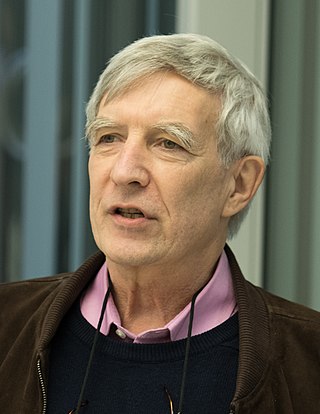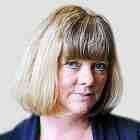
In general, a rural area or a countryside is a geographic area that is located outside towns and cities. Typical rural areas have a low population density and small settlements. Agricultural areas and areas with forestry typically are described as rural. Different countries have varying definitions of rural for statistical and administrative purposes.

Economic inequality is an umbrella term for a) income inequality or distribution of income, b) wealth inequality or distribution of wealth, and c) consumption inequality. Each of these can be measured between two or more nations, within a single nation, or between and within sub-populations.

Structural violence is a form of violence wherein some social structure or social institution may harm people by preventing them from meeting their basic needs.
Health equity arises from access to the social determinants of health, specifically from wealth, power and prestige. Individuals who have consistently been deprived of these three determinants are significantly disadvantaged from health inequities, and face worse health outcomes than those who are able to access certain resources. It is not equity to simply provide every individual with the same resources; that would be equality. In order to achieve health equity, resources must be allocated based on an individual need-based principle.

Population health has been defined as "the health outcomes of a group of individuals, including the distribution of such outcomes within the group". It is an approach to health that aims to improve the health of an entire human population. It has been described as consisting of three components. These are "health outcomes, patterns of health determinants, and policies and interventions".

Sir Michael Gideon Marmot is Professor of Epidemiology and Public Health at University College London. He is currently the Director of The UCL Institute of Health Equity. Marmot has led research groups on health inequalities for over thirty years, working for various international and governmental bodies. In 2023, he was elected to the American Philosophical Society.
The social determinants of health (SDOH) are the economic and social conditions that influence individual and group differences in health status. They are the health promoting factors found in one's living and working conditions, rather than individual risk factors that influence the risk for a disease, or vulnerability to disease or injury. The distributions of social determinants are often shaped by public policies that reflect prevailing political ideologies of the area.

Richard Gerald Wilkinson is a British social epidemiologist, author, advocate, and left-wing political activist. He is Professor Emeritus of social epidemiology at the University of Nottingham, having retired in 2008. He is also Honorary Professor of Epidemiology and Public Health at University College London and Visiting Professor at University of York. In 2009, Richard co-founded The Equality Trust. Richard was awarded a 2013 Silver Rose Award from Solidar for championing equality and the 2014 Charles Cully Memorial Medal by the Irish Cancer Society.

Social medicine is an interdisciplinary field that focuses on the profound interplay between socio-economic factors and individual health outcomes. Rooted in the challenges of the Industrial Revolution, it seeks to:
- Understand how specific social, economic, and environmental conditions directly impact health, disease, and the delivery of medical care.
- Promote conditions and interventions that address these determinants, aiming for a healthier and more equitable society.

Social inequality occurs when resources in a given society are distributed unevenly, typically through norms of allocation, that engender specific patterns along lines of socially defined categories of persons. It poses and creates a gender gap between individuals that limits the accessibility that women have within society. The differentiation preference of access to social goods in the society is brought about by power, religion, kinship, prestige, race, ethnicity, gender, age, sexual orientation, and class. Social inequality usually implies the lack of equality of outcome, but may alternatively be conceptualized in terms of the lack of equality in access to opportunity. This accompanies the way that inequality is presented throughout social economies and the rights that are skilled within this basis. The social rights include labor market, the source of income, health care, and freedom of speech, education, political representation, and participation.
While epidemiology is "the study of the distribution and determinants of states of health in populations", social epidemiology is "that branch of epidemiology concerned with the way that social structures, institutions, and relationships influence health." This research includes "both specific features of, and pathways by which, societal conditions affect health".
People's Health Movement (PHM) is a global network of grassroots health activists, civil society organizations and academic institutions particularly from developing countries. PHM currently has bases in more than 70 countries that include both individuals and well-established circles with their own governance structures. It has chapters in South Asia, Africa, Pacific (Australia), South America, Central America, North America, Europe and several other countries. PHM works towards the revitalisation of Primary Health Care (PHC), as described in the Alma-Ata Declaration of 1978.
Rural poverty refers to poverty in rural areas, including factors of rural society, rural economy, and political systems that give rise to the poverty found there. Rural areas, because of their spread-out populations, typically have less well maintained infrastructure and a harder time accessing markets, which tend to be concentrated in population centers.

Danny Dorling is a British social geographer. Since 2013, he has been Halford Mackinder Professor of Geography of the School of Geography and the Environment of the University of Oxford.

Kate Elizabeth Pickett is a British epidemiologist and political activist who is Professor of Epidemiology in the Department of Health Sciences at the University of York, and was a National Institute for Health and Care Research Career Scientist from 2007–2012. She co-authored The Spirit Level: Why More Equal Societies Almost Always Do Better and is a co-founder of The Equality Trust. Pickett was awarded a 2013 Silver Rose Award from Solidar for championing equality and the 2014 Charles Cully Memorial Medal by the Irish Cancer Society.
The social determinants of health in poverty describe the factors that affect impoverished populations' health and health inequality. Inequalities in health stem from the conditions of people's lives, including living conditions, work environment, age, and other social factors, and how these affect people's ability to respond to illness. These conditions are also shaped by political, social, and economic structures. The majority of people around the globe do not meet their potential best health because of a "toxic combination of bad policies, economics, and politics". Daily living conditions work together with these structural drivers to result in the social determinants of health.

Poverty in New Zealand deals with the incidence of relative poverty in New Zealand and its measurement. Between 1982 and 2011, New Zealand's gross domestic product grew by 35%. Almost half of that increase went to a small group who were already the richest in the country. During this period, the average income of the top 10% of earners in New Zealand almost doubled going from $56,300 to $100,200. The average income of the poorest tenth increased by only 13% from $9700 to $11,000. Figures from 2016 show that about 15% of the population lives in poverty, compared to 9% in the 1980s, and 22% in 2004.

Effects of income inequality, researchers have found, include higher rates of health and social problems, and lower rates of social goods, a lower population-wide satisfaction and happiness and even a lower level of economic growth when human capital is neglected for high-end consumption. For the top 21 industrialised countries, counting each person equally, life expectancy is lower in more unequal countries. A similar relationship exists among US states.

EuroHealthNet is a non-profit partnership of organisations, agencies and statutory bodies working to contribute to a healthier Europe by promoting health and health equity between and within European countries. EuroHealthNet promotes health through its partnership framework by supporting members’ work in the EU and associated states through policy and project development, networking, and communications.
The COVID-19 pandemic has had an unequal impact on different racial and ethnic groups in the United States, resulting in new disparities of health outcomes as well as exacerbating existing health and economic disparities.











